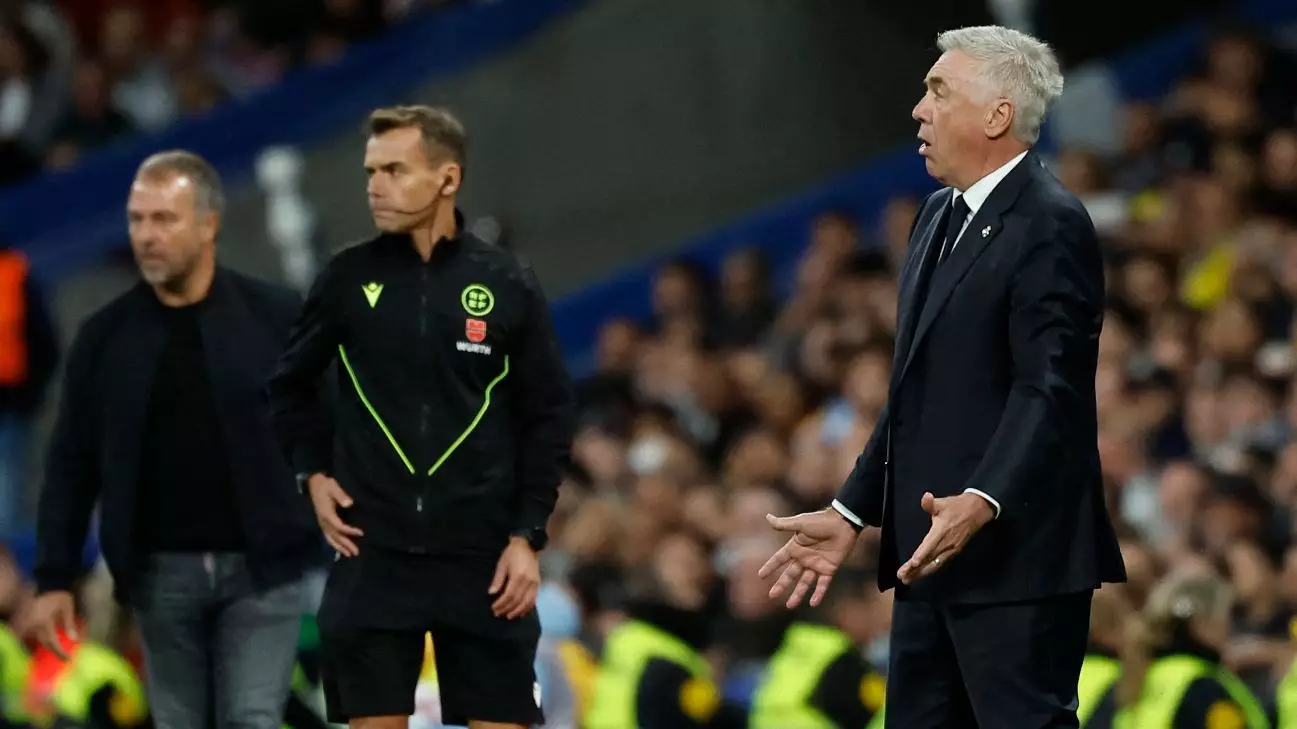The El Clásico encounters between Real Madrid and Barcelona have always held an imposing significance in the realm of football, dominating headlines and fan discussions worldwide. The recent match at Santiago Bernabéu, however, bore witness to far more than a typical clash of titans; it unveiled a stark contrast in the performance levels of both teams. With Barcelona coasting to a 4-0 victory, they not only put a halt to Madrid’s towering 42-game unbeaten streak in La Liga but also demonstrated a resurgence that hints at a bright season ahead under coach Hansi Flick.
Real Madrid, under Carlo Ancelotti, entered the match with confidence, possibly buoyed by their past victories in El Clásico, having won the last four matches. However, the expectations were swiftly dashed in the second half, where a noticeable decline in performance led to their unraveling. Ancelotti’s post-match remarks reflected not only disappointment but also a hint of frustration directed at the behavior exhibited by the Barcelona bench during the latter parts of the match. His criticism was specifically aimed at one of Flick’s assistants, which suggested a clash of sportsmanship that transcended the field. Such incidents, while common in high-stakes matches, must be managed with restraint and respect, reflecting the essence of the sport.
The opening half of the match had offered a sense of hope for Madrid; possession was relatively balanced, and chances were created. However, as the game progressed and Lewandowski found the back of the net not once but twice within a span of three minutes, the momentum shifted dramatically. The psychological impact of conceding those goals cannot be understated; it was evident that Madrid’s energy and resolve waned significantly after falling behind.
Lamine Yamal and Raphinha’s goals added salt to the wounds of Los Blancos, further emphasizing their defensive frailties. Ancelotti noted that until the scoring began, the game felt evenly matched; nevertheless, once Barcelona gained the upper hand, they capitalized ruthlessly on Madrid’s vulnerabilities, particularly with counter-attacks that effectively sealed Madrid’s fate.
The match also marked a challenging day for Kylian Mbappé, who, despite his talent, found himself offside on numerous occasions, highlighting a tactical disconnect between him and the team’s strategy. With eight offsides to his name, this not only illustrated a misalignment in timing but also suggested that Madrid’s attempts to exploit Barcelona’s high defensive line were poorly executed. Ancelotti rightfully expressed concerns about their execution of risks, emphasizing the need for clinical finishing, especially when such opportunities arise fleetingly.
The frustration enveloping Madrid’s performance bore similarities to previous tactical observations that suggested the club is still grappling with finding a cohesive rhythm that allows pivotal players to thrive amidst pressure.
For Barcelona, the victory provided a significant morale boost, coming so quickly after a dominant 4-1 performance against Bayern Munich. Under Hansi Flick’s management, the team is beginning to find its groove, marked by impressive attacking flair and tactical awareness. The notion that he has already steered the club to 12 wins out of 14 games speaks volumes about the transformation underway at Camp Nou.
Flick’s insistence on maintaining a grounded approach even in the face of rising ambitions is noteworthy. His comments reflect a deep understanding of the dynamics at play—while victories are crucial, the team’s long-term development hinges on consistency and a clear identity on the pitch. This shift not only reinvigorates the players but also re-establishes confidence that can be critically beneficial in both national and international competitions.
The Road Ahead: Learning from Defeats and Building Futures
For Real Madrid, this loss serves as a clarion call for reflection and recalibration. Ancelotti’s emphasis on not discarding the positive aspects of their play in the first half suggests a forward-looking mindset—one that recognizes potential and learning as vital components of growth. The club faces a pivotal moment; how they respond to this defeat could set the tone for the remainder of the season.
In contrast, Barcelona must navigate the fine line between confidence and complacency. As they continue their ascent in La Liga and beyond, maintaining focus will be paramount. For both teams, the lessons learned from this Clásico could very well shape their trajectories, reaffirming that in football, every match is not just about the scoreline but the journey toward improvement and excellence.

